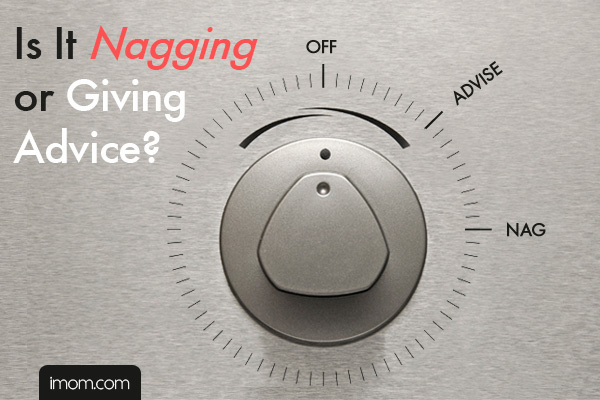I thought it was a quaint idea when my husband first suggested it: napkins on the kitchen table. Now, paper napkins have become the bane of my days. Day after day after day they litter the table, the floor, the countertops. Day after day I get after my kids to clean up. They usually respond quickly, but if I want a long-term solution to the napkin problem I need to learn how to stop nagging.
Nagging is tempting to do. It is temporarily satisfying, but it rarely leads to happy resolutions. Keep watch for these 3 red flags that may mean you are in a nagging rut, and follow the 4 tips to encourage more kid cooperation.
Red Flag #1: Avoiding Eye Contact
If eye contact with your child is consistently spotty, your words may be going in one ear and out the other. Many kids adopt an attitude of compliance just to get Mom to stop talking. If they look at the ground and agree to clean up right away, chances are you’ll be back with the same request before you know it.
Red Flag #2: Deliberate Non-Compliance
Some kids respond to nagging with passivity. They might see the mess and even be inclined to clean it up, but because you’ve given them such a hard time they ignore it out of spite. When your kids go out of their way to avoid even the easy cooperative tasks, nagging will only exacerbate the disconnect between you two.
Red Flag #3: You Cringe at the Sound of Your Own Voice
Repeated threats, cajoling, or pleas can leave us squirming at the sound of our own nagging voices. When you become exasperated by your own behavior, it’s time to assess your stress level. Are you meeting your own needs for nurturance, connection, and rest? Do you hold yourself to impossible standards of perfection that leave you feeling perpetually inept?
Solutions to Stop Nagging
- Check your tone and reframe your position. “When are you going to grow up and learn to help out around here?” fosters resentment and avoidance. Instead, try: “I feel overwhelmed by the task of cleaning and I need your help to keep up.” Assume your child is your ally and approach him with an expectation of cooperation.
- Focus on relationships, not results. Take a moment to self-reflect. Is your request unreasonably difficult? Is your response to your child’s efforts overly critical or nit-picky? Behavior stems from relationships, so when kids misbehave, look for ways to repair connection.
- Reduce your own stress. Elevated stress leads us to lash out and find fault in others. If this is a habit for you, look for ways to acknowledge your needs and address them in a healthy way.
- Clarify expectations and enforce consequences. Not all consequences are punishments—sometimes they are simply common sense. If your child repeatedly ignores technology boundaries, she is likely not ready for so much access. If she fails to complete her weekly chores, perhaps it’s time for Saturday mornings to become a family housecleaning time for all. The idea is not to guilt her for her shortcomings but to support her to succeed at the expectations you put in place.
Tell us! How do you keep yourself from nagging?










